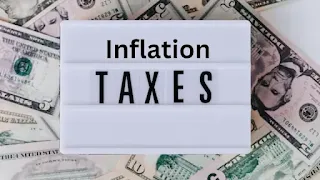What is inflation tax in economics
An inflation tax is a tax that aims to combat inflation, affecting the economy and affecting individuals and policymakers.
Introduction
Inflation tax, a term often heard but not fully grasped, plays a crucial role in shaping economic landscapes. This article delves into the definition of inflation tax and emphasizes its importance for individuals and policymakers alike.
How Inflation Tax Works
Understanding the intricate mechanism of inflation tax is vital. This section explores how it operates and sheds light on its impact on the purchasing power of individuals and businesses.
Historical Context
To comprehend the present, we must delve into the past. Examining instances of inflation tax in economic history provides valuable insights and teaches us lessons from experiences that should not be forgotten.
Causes of Inflation Tax
Various factors contribute to the emergence of inflation tax, and government policies play a significant role. Unpacking these causes is essential for a comprehensive understanding.
Effects on Individuals
Inflation tax is not a distant economic concept; it directly affects individuals. This section discusses the erosion of savings and the redistribution of wealth resulting from inflation tax.
Inflation Tax vs. Traditional Taxation
Drawing a comparison between inflation tax and traditional taxation reveals distinct characteristics. Exploring the pros and cons of each approach provides a nuanced perspective.
Controlling Inflation Tax
Governments employ monetary policy measures to control inflation tax, and central banks play a pivotal role in these efforts. This section examines these measures and their effectiveness.
Global Perspectives
Different countries adopt diverse strategies to handle inflation tax, impacting international trade. This section provides insights into these global perspectives and their implications.
Inflation Tax and Investment
Investment decisions are influenced by the presence of inflation tax. Strategies to mitigate risks associated with it are crucial for investors navigating complex financial landscapes.
Challenges and Criticisms
Debates surrounding inflation tax often lead to alternative viewpoints. This section explores the challenges and criticisms, fostering a deeper understanding of this economic phenomenon.
Future Trends
Predicting future trends in inflation tax is essential for proactive economic strategies. This section delves into forecasts and evolving strategies to address this dynamic aspect of economics.
Inflation Tax in the Digital Age
As technology shapes our world, it also influences inflation tax. This section explores the role of technology, including the impact of digital currencies on inflation tax.
Real-life Examples
Illustrating theories with real-life examples provides a practical understanding of inflation tax. Case studies presented here shed light on the implications in various contexts.
Educating the Public
Financial literacy is a powerful tool against the complexities of inflation tax. This section emphasizes the importance of educating the public and empowering individuals to navigate economic challenges.
Conclusion
In conclusion, grappling with the concept of inflation tax is essential for anyone navigating the complexities of modern economies. From its historical context to its impact on individuals and global perspectives, understanding the inflation tax empowers individuals to make informed financial decisions and advocates for sound economic policies.
Frequently Asked Questions
1. Is inflation tax the same as traditional taxation?
- While both involve a reduction in real income, inflation tax and traditional taxation differ in their mechanisms and direct government involvement.
2. How can individuals protect themselves from the effects of inflation tax?
- Diversifying investments, considering inflation-protected securities, and staying informed about economic trends can help mitigate the impact.
3. Are there any benefits to inflation tax?
- Some argue that moderate inflation can stimulate economic growth, but the debate around the benefits remains nuanced.
4. How do central banks influence inflation tax?
- Central banks use monetary policy tools, such as interest rates, to control inflation and mitigate its economic impact.
5. What role does technology play in shaping inflation tax in the digital age?
- Technology, including the rise of digital currencies, introduces new dynamics to the inflation tax, requiring innovative approaches to economic policy.




